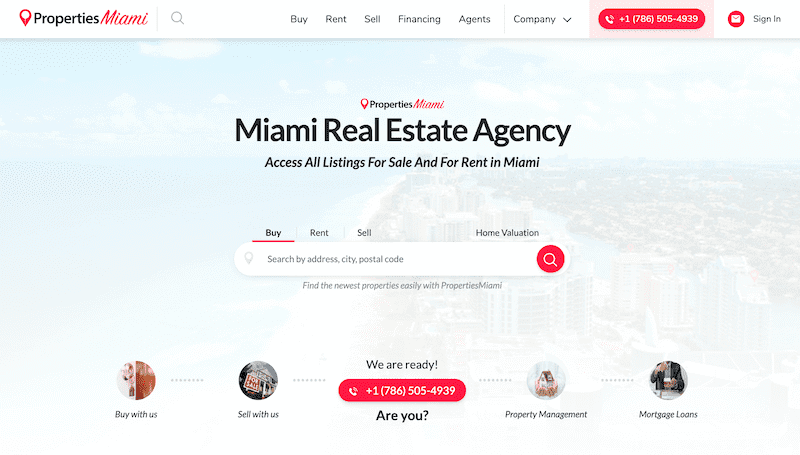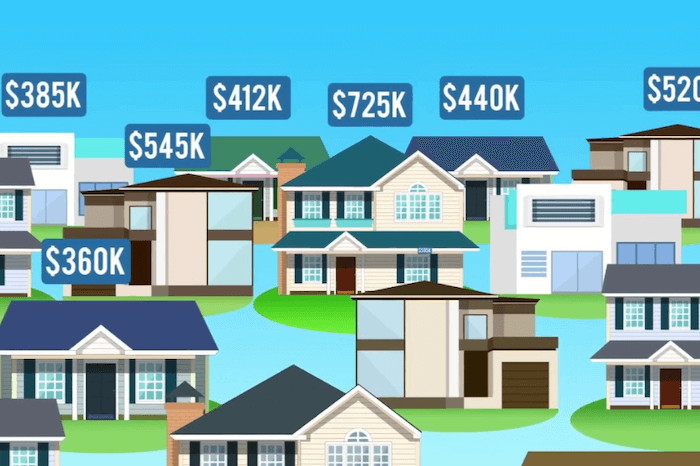Comparing Home Loans: Your Best Mortgage Options
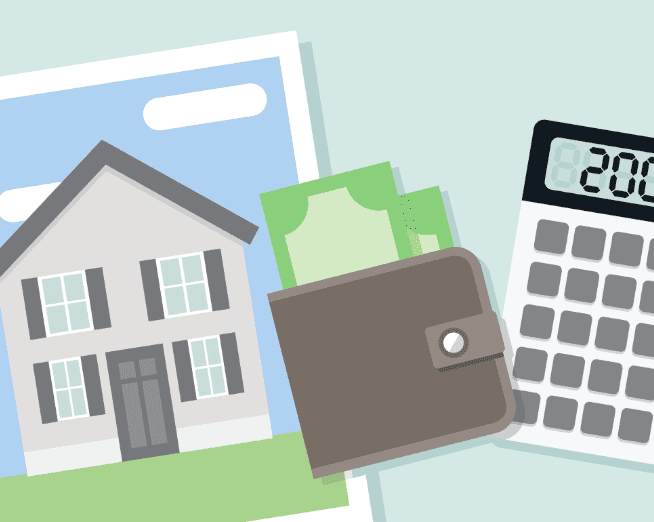
If you’re looking for a home loan, you have several options to choose from. There are loans for people who are first time buyers, while others are meant for people who want to make money through the real estate market or buy property for investment purposes.
There are also home loans that have flexible features and payment options, and there are those which are fixed and tightly regulated by the government. So if you’re looking for some capital to pay for your new property, the following information will teach you what to look for.
How Do You Choose A Good Home Loan?
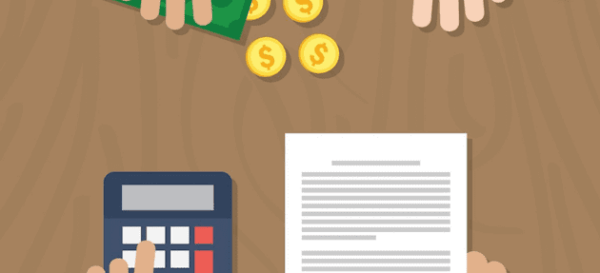
There are numerous factors that affect home loans. These include where you plan to live, whether or not you’re willing to stay put, your income, your credit score, and various other variables.
Each of these factors can affect your loan’s fees, down payment and interest. So before you even think about your home loan options, you should first consider your situation. No matter which type of home loan you choose to get, you will need to worry about down payments, standard loan amounts, insurance costs and of course interest.
Here are several tips to help you get started.
Look at the Rates
Different home loans have different interest rates. These rates reflect the size and risk of each type of home loan. They are also affected by government regulations, local market prices as well as the Federal interest rate.
Here are several examples of home loan rates.
Variable Rates – Loans with variable rates fluctuate in line with the Federal interest rate and are usually less secure than those loans which have fixed interest rates.
Because of the nature of variable interest rate loans, they are usually considered risky by many borrowers, particularly if the Fed is expected to raise interest rates very soon.
Fixed Rates – Loans with fixed rates have interest rates which are locked in for a certain period of time. Most conventional loans have fixed rates, making them more stable and affordable to consumers but also more inflexible.
People who just want to buy a house and start a family usually get fixed rate loans because of their predictable nature.
Split Rates – Split rate loans are hybrids of variable and fixed rates. Essentially, part of the loan has a variable interest rate, while the other is fixed. This allows the borrower to get the benefit of both types of interest rates.
Documentation

You should also worry about documentation. Although many financial institutions treat documentation as a formality, certain loans have very strict requirements.
There are generally two kinds of documentations with regards to loans. These include:
Low Documentation – These types of documents are used by loans for borrowers who have trouble providing documentation about their income, such as business owners, immigrants and self-employed persons.
Low documentation loans are also flexible because they allow borrowers to use whatever documents and IDs to prove their identities and income. For example, a loan with low documentation requirements may allow you to provide your billing history instead of a full credit report.
Full Documentation – Loans with full documentation requirements require borrowers to complete a full set requirements before they are allowed to get the loan. They usually include statements about your income, debts and assets as well as proof that you are eligible for the loan or the designated interest rate
Loans that require full documentation are also inflexible. So prepare the necessary materials ahead of time if you want these kinds of loans.
Fees
All home loans have fees, and they can add up to your total costs. Different types of home loan fees include application fees, legal fees, exit fees, ongoing fees and more.
There are also loans with penalty fees and some that have hidden fees. So before you decide to get a loan, be sure to look at their fees. They are quite small compared to the rest of your loan, but they can have a big impact on your total costs.
Features
Some loans have special features. A few good examples include redraws, extra repayment options as well as offset accounts. There are also loans that offer professional package discounts, salary crediting and loan portability.
These features won’t have a big effect on your total loan costs, but they can give you more flexibility with regard to payments.
Repayment Options
And speaking of payments, you also have repayment options to consider. These include fixed rates and variable rates (both of which we have already covered) as well as interest-only and principal and interest payments.
There are also certain options which are specific to a particular type of loan, and were designed to help borrowers.
Eligibility
You may be eligible for certain types of home loans and ineligible for others. There are also home loans which are designed for your particular demographic, while others are intended for other types of people. For example, some home loans are restricted based on employment status and income.
There are also loans which are only eligible for certain types of properties. For example, they may be restricted based on the number of square meters of a property.
And finally, there are loans that are based on your residency. The USDA loan is a good example, but there are also plenty of state and local home loans which are only available to local residents.
So when you pick a loan, prioritize the ones which you are eligible for. Some may provide you with very useful benefits.
Different Types of Home Loans
Now that we’ve talked about what it takes to choose a good home loan, let’s talk about your options. So what are the different types of home loan options available to ordinary people?
Here are the most prominent options out there:
Hard Money Loans

Hard Money loans are loans that don’t involve traditional financial institutions. Instead, the loan is given by an individual or investor based on the borrower’s capital.
Hard money lenders only care about their borrower’s collateral. They don’t care about credit scores, eligibility issues or even government mandates. As long as you can provide proof of your collateral, you will get your funds and quickly.
So if you need a fast loan with minimal requirements and paperwork, hard money loans are for you.
Of course, all this easy access comes at a cost. Hard money loans are typically expensive, with higher than average interest rates, and some can be quite risky.
Fortunately, there are plenty of hard money lenders and investors out there, and some platforms will help you find one who is willing to lend out at favorable terms.
Fixed-Rate Loans

Let’s start with something basic: Fixed Rate Loans. These are conventional loans with standard interest rates and monthly or quarterly payments.
These types of loans are also adjusted to allow borrowers to buy a standard property in their area, as well as pay off the principal amount in 2 to 3 decades. They also require you to pay a 20% down payment on your home’s purchase price.
Additionally, fixed-rate loans are not a good choice if you want to build up equity through your home. You may end up paying more money in total interest over the course of several years. So they may not the best type of loans if you plan to get the best deal out of a house.
Despite these issues, fixed-rate loans do offer a certain amount of stability. They are also ideal for people who are planning to buy a permanent home for their family.
They are simple, low-risk loans which are largely unaffected by changing interest rates. On the other hand, fixed-rate loans are not suitable for those of you who are only interested in real estate investments.
FHA Loans

Federal Housing Administration or FHA loans are a cheaper version of fixed-rate loans. They usually only require a 3.5% down payments on your property’s purchase price, and this is because they are backed by the government, which reduces their risk to financial institutions while allowing less affluent borrowers access to reasonable home financing.
FHA loans were created for low-income borrowers, and most have $417,000 limits. Additionally, they also have 15 to 30-year terms, and they require borrowers to get mortgage insurance. You can learn more about these types of loans by visiting the FHA and Housing and Urban Development websites.
USDA Loans

USDA Rural Development loans are loans meant for families living in rural areas and communities. If you are eligible for this loan then the government will finance 100% of your home’s cost, which means that you won’t have to make a down payment.
You will also be eligible for lower interest rates and easy mortgage payments.
The only downside is that USDA loans may not exceed your general income by more than 41%. You will also need to purchase mortgage insurance as part of the requirements, and you will need to provide a lot of documentation to prove your eligibility.
So if you don’t like what FHA loans have to offer, and you live in a rural part of the country, then USDA Rural Development loans may be a viable alternative for you.
o if you don’t like what FHA loans have to offer, and you live in a rural part of the country, then USDA Rural Development loans may be a viable alternative for you.
Adjustable-Rate Mortgage
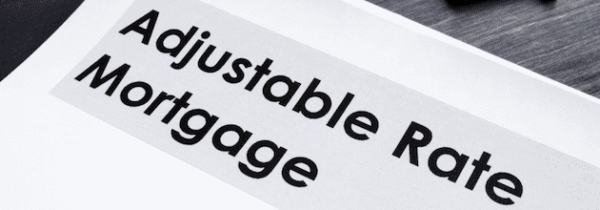
Adjustable-rate mortgages offer interest rates that are lower compared to fixed-rate loans for the same period of time. However, these rates are also adjusted yearly to correspond to current interest rates. So basically, you pay less when interest rates are low and more when they go up.
Given the nature of these loans, they are best suited to people with low credit scores. The downside, of course, is that they can be quite bad when interest rates go up. So they are not the cheapest option out there.
Adjustable-rate loans are also a good choice for people who just want to invest in real estate and need a source of capital that is conducive to their investment strategy. Various incentives and payment options also help borrowers to reduce the cost of high-interest rates.
Conforming Loans

Conforming loans are conventional loans which are designed to ‘conform’ to the limits established by the Federal Housing Agency. These loans are limited to only $424,100, though their limit can rise in certain states and markets.
Borrowers who want to take out conforming loans must have the appropriate credit scores, history, debt to income ratios and loan to value ratios. These factors are then taken together to estimate an appropriate down payment and interest rate for the borrower.
Conforming loans are ideal for borrowers who want conventional loans but are unable to get favourable terms or interests. You can learn more about these types of loans by visiting the FHA website.
Do You Need Help Choosing a Home Loan?
If you need further help choosing a home loan, you can find plenty of sources that can help you make your decision. For starters, you can turn to financial experts and advisors.
Not only can they help you choose a good home loan option, they can also tell you how your choice may affect the rest of your finances. For example, they can advise you on questions of eligibility, documentation and various home buyers programs.
Some financial advisors and lending institutions may also provide consultation services to help you choose a loan that matches your needs. Home loan consultants can help you look at different common loans, their down payments and their respective pros and cons.
For example, if you’re interested in a conventional with an insurance requirements, a consultant can tell you how to reduce your insurance costs or at what level of equity they will start to fall off.
There are also government home loan consultants who can tell you about the FHA and other government backed home loans.
Furthermore, they can also help answer your questions with regards to loan eligibility and loan repayment. They can also provide you with a rough estimate of how long it will take you to pay back the loan, as well as various other schemes that can help you pay down the costs.
So it’s not enough to know your home loan options. You should also find an expert to help you throughout the entire process.
Aside from consultants, you may also want to look at online home loan calculators. There are plenty of them on the internet and you can even find plenty of apps.
These calculators can tell you how much money you can expect to get from different loan options, their corresponding interest rates and how long it will take you to pay them off. You can combine their estimates and the information that your loan consultant gives you to pick the best home loan for your needs.
Some calculators even have tables and infographics to show you which type of loans are most appropriate for your needs. So try them whenever you get the chance.
